
Senecio is a genus of flowering plants in the daisy family (Asteraceae) that includes ragworts and groundsels.
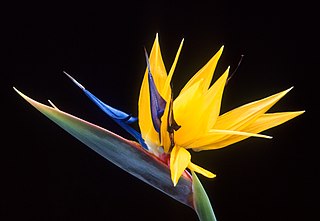
Strelitzia is a genus of five species of perennial plants, native to South Africa. It belongs to the plant family Strelitziaceae. A common name of the genus is bird of paradise flower/plant, because of a resemblance of its flowers to birds-of-paradise. In South Africa, it is commonly known as a crane flower.

Carl Johan Fredrik Skottsberg was a Swedish botanist and explorer of Antarctica.
Spegazzinia is a genus of widely distributed mitosporic ascomycete fungi in the family Didymosphaeriaceae.As accepted by Wijayawardene et al. 2020.
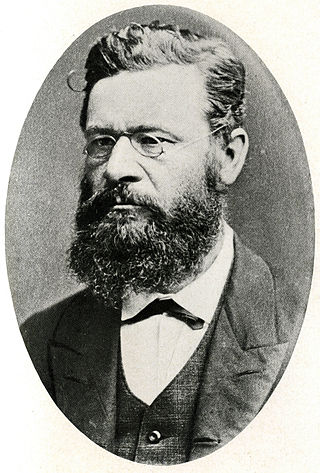
Petter Adolf Karsten was a Finnish mycologist, the foremost expert on the fungi of Finland in his day, and known in consequence as the "father of Finnish mycology".
Leslie Pedley was an Australian botanist who specialised in the genus Acacia. He is notable for bringing into use the generic name Racosperma, creating a split in the genus, which required some 900 Australian species to be renamed, because the type species of Acacia, Acacia nilotica, now Vachellia nilotica, had a different lineage from the Australian wattles. However, the International Botanical Congress (IBC), held in Melbourne in 2011, ratified its earlier decision to retain the name Acacia for the Australian species, but to rename the African species.
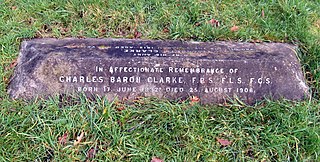
Charles Baron Clarke was a British botanist. He was born at Andover, the eldest son of Turner Poulter Clarke. He was educated at King's College School, London, and at Trinity and Queens' Colleges, Cambridge. He began the study of law at Lincoln's Inn in 1856 and was called to the bar in 1860. He lectured in mathematics at Presidency College, Calcutta, from 1857 to 1865. Clarke was Inspector of Schools in Eastern Bengal and later of India, and superintendent of the Calcutta Botanical Garden from 1869 to 1871.

Satakentia liukiuensis, is a species of palm tree. They are endemic to Ishigaki Island and Iriomote Island in the Yaeyama Islands, the south-westernmost of the Ryukyu Islands, Japan. It is the only species in the genus Satakentia.
Rosselia is a genus of plants in the family Burseraceae. The sole species is Rosselia bracteata, endemic to Papua New Guinea. It is a tree and grows primarily in the wet tropical biome(s).
Setchellanthus caeruleus is a species of pungent shrub with large blue flowers. It is placed alone in the genus Setchellanthus, which is in turn, is placed alone in the family Setchellanthaceae. It is endemic to Mexico.
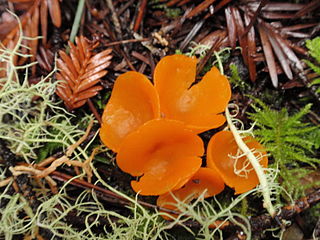
Sowerbyella is a genus of fungi in the family Pyronemataceae. The genus has a widespread distribution, and contains 17 species found mostly in Europe and China.
Chandrasekharania is a genus of Indian plants in the grass family.
Duboscquella is a genus of dinoflagellates.

John-Axel Nannfeldt, born 18 January 1904 in Trelleborg and deceased 4 November 1985 in Uppsala, was a Swedish botanist and mycologist.

Carlo Luigi Spegazzini, in Spanish Carlos Luis Spegazzini, was an Italian-born Argentinian botanist and mycologist.
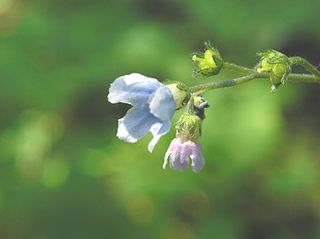
Andersonglossum is a small genus of North American plants in the borage family (Boraginaceae). They are commonly called American comfreys, wild comfreys, or hound's tongues.
Theodoric Valeton was a Dutch botanist.

Fischerella is a genus of cyanobacteria belonging to the family Hapalosiphonaceae.










